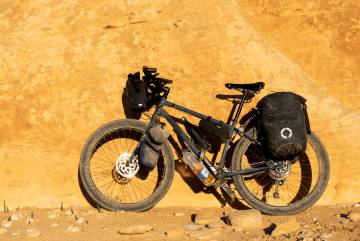Why Learning English Will Improve Your Travel Experience
Now that the world is becoming more open to travel, it is the perfect time to consider taking a well-earned break and getting away from it all. At first glance, this seems so simple, with online tools available to cater for seemingly every possibility.
In this article
However, it can be more complicated than it first appears, and there are lots of aspects to consider when planning the ideal getaway. Below are just a few simple hints and tips to think about when planning that all important vacation.
The importance of the English language
English has been a global lingua franca for decades, and it continues to be a big fixture in many foreign education curriculums. This creates a wonderful opportunity for those looking to combine work and travel, for instance a full teach English in France program could be just the ticket for any teacher who wants to improve their skill set.
First of all, these courses are organised and taught by seasoned TEFL (or Teaching English as a Foreign Language) professionals, who have seen it and done it all before. Therefore, their programmes are designed with the future TEFL teacher in mind, covering everything from the fundamentals of grammar and vocabulary, all the way up to dealing with tricky classroom management situations.
Utilising this ability might just be the key to a career helping others learn the beauty and subtleties that the English language has to offer. So, it is a fantastic option in both the short-term and long-term.
Travel options
When the vast majority of families contemplate the travel possibilities open to them at any one time, traveling by air is likely to be the first one that comes up. This is understandable, not only because planes tend to be a bit quicker, but also because many tour operators include return airfare as part of a package deal. This usually saves families precious time and effort in organising each component separately.
Having said that, there are lots of other options on the table. Whether it be driving by car, taking a boat or cruise ship, or even having a biking holiday, there are many great ways to explore the world without merely relying on the pressures of flying.
A family bike vacation, for example, contains a whole host of benefits for adults and kids alike. Of course, there is the fitness aspect, which is fairly self explanatory. Secondly, there is the chance to bond together through a shared experience, especially one that encompasses aspects of the natural world.
Last, but by no means least, cycling enables everyone to look at the world through a whole new lens, offering opportunities for deep and meaningful conversations with the children, from topics as diverse as fuel emissions to deforestation.
Learning a new language
Contrary, perhaps, to teaching English is the possibility to learn another language as well. Studies have shown that language study can help the brain, at any age. Indeed, the research has indicated that it is possible to learn a new language at almost any age, provided with adequate self motivation and quality external support mechanisms.
Traveling abroad offers a great glimpse into the life and cultures of others, and learning their language is the optimal way to break the ice and enable a smoother and richer understanding of the society being visited. This can range from something as simple as a pleasant greeting in the street, to interacting in a facile communication in the store or at the station.
Naturally, even attempting to speak with another in their mother tongue shows a willingness to look beyond borders, and could really allow people in their native land to let down their guard and show more of their lives to a traveler. This can take the form of inviting the new travel companion to share a meal or a coffee, or even to attend a local heritage event with them in person.
Seeing the world differently than before
Another advantage of learning a second language is the ability of the brain to then see the world in a whole new way. Several scholars have likened the second language learning process as akin to wearing a different pair of glasses, and this is not a difficult metaphor to comprehend.
In the same way that glasses can help people see more clearly, so the second language learner has the chance to witness the events of their life via a totally new pair of eyes. For instance, many Latin languages contain masculine and feminine nouns, which means that a table (which does not have either a masculine or feminine form in English) suddenly becomes imbued with a set of properties that are considered feminine in the mind of that speaker, as opposed to a pen, that is usually masculine by definition.
The issue is clouded further in many Slavic languages, which contain a neuter (neither masculine nor feminine) case for certain items, from milk to a car. Discovering these nuances is a fascinating viewpoint from which to perceive the mindset of those around the world, and can help explain some of the issues those speakers then have when learning English.
Lifelong learning
In summary, then, it is possible and advantageous to have the mentality of a lifelong learner for traveling anywhere. The mind of a traveler is automatically one of curiosity about the planet, and the inhabitants that reside in all four corners of it. This should be harnessed in the form of creating chances for interactions that enable both the traveler and the local culture to learn from one another.
This could take place in the form of an informal language exchange at a local restaurant or cafe, or even a more structured classroom setup which a qualified and certified TEFL teacher would be well set up to deliver. Either way, the process of travel is one that opens the door to these communication situations, and is one to be relished and enjoyed for the months and years to come.
Log in with ( Sign Up ? )
or post as a guest
Be the first to comment.

Leo
ITA - Cicloviaggiatore lento con il pallino per la scrittura e la fotografia. Se non è in viaggio ama perdersi lungo i mille sentieri che solcano le splendide montagne del suo Trentino e dei dintorni del lago d'Iseo dove abita. Sia a piedi che in mountain bike. Eterno Peter Pan che ama realizzare i propri sogni senza lasciarli per troppo tempo nel cassetto, ha dedicato e dedica gran parte della vita al cicloturismo viaggiando in Europa, Asia, Sud America e Africa con Vero, compagna di viaggio e di vita e Nala.
EN - Slow cycle traveler with a passion for writing and photography. If he is not traveling, he loves to get lost along the thousands of paths that cross the splendid mountains of his Trentino and the surroundings of Lake Iseo where he lives. Both on foot and by mountain bike. Eternal Peter Pan who loves realizing his dreams without leaving them in the drawer for too long, has dedicated and dedicates a large part of his life to bicycle touring in Europe, Asia, South America and Africa with Vero, travel and life partner and Nala.















